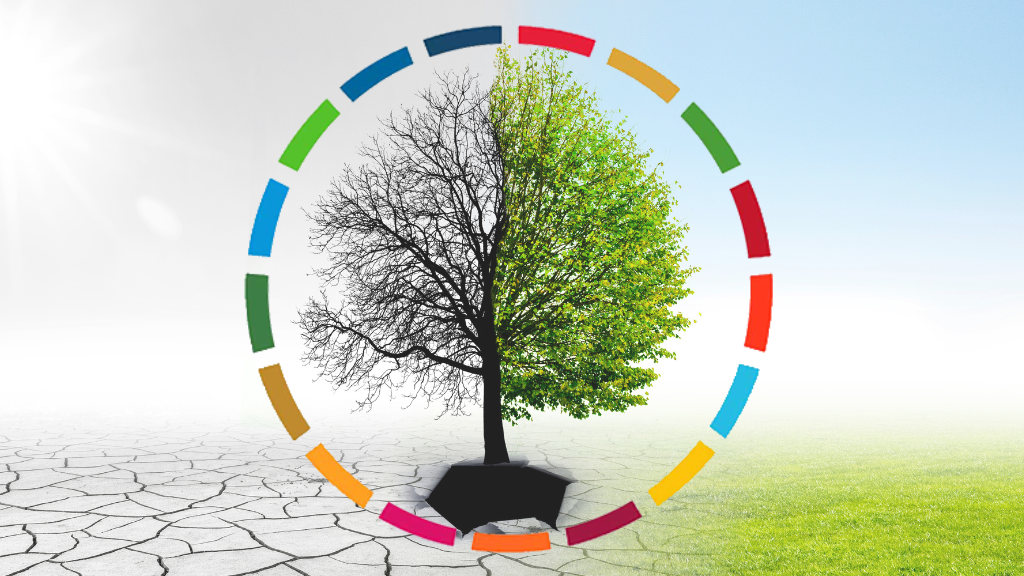Dominica: National workshop on generating climate change and disasters indicators for policy decision-making
Work area(s)
Teaser
The Caribbean region is acutely threatened by climate change, particularly the Small Island Developing States (SIDS). Dominica is no exception. Availability of quality statistics and indicators are crucial to effectively respond to the effects of climate change and build resilience.
Event information

Date
19 - 21 Jul 2022, 05:00 - 11:30Event type
Participation
Background
The Caribbean region is acutely threatened by climate change, particularly the Small Island Developing States (SIDS). Dominica is no exception. The country is situated in the tropical cyclone belts and is directly exposed to the forces of the oceans. And as a small geographical area, disasters might affect vast proportions of the country.
Availability of quality statistics and indicators are crucial to effectively respond to the effects of climate change and build resilience.
Against this backdrop, the ECLAC´s Statistics Division, Sub regional Office for the Caribbean, in collaboration with the Sustainable Development and Human Settlements Division, are joining forces to enhance the production and use of key indicators and metrics to monitor and adapt to the effects of climate change and strengthen Environmental Information Systems (EIS). These efforts, supported by the Development Account of the United Nations, aim to boost the environmental pillar of the 2030 Agenda and improve policy coherence in the implementation of the Escazú Agreement, the Revised St. George´s Declaration (SGD 2040), the SAMOA Pathway, the Paris Agreement, and the Sendai Framework.
Objectives
- Train the participants to build selected environment, climate change and disaster indicators and its metadata.
- Identify data and capacity gaps to develop an Environmental Information System (EIS) and build a regional resilience platform.
- Have a better understanding of how geospatial data can enhance the use of environment, climate change and disaster indicators for effective decision making.
Expected outcomes
- At least four prioritized climate change and disasters indicator and its metadata are available at the end of the workshop.
- A selection of prioritized indicators from the Global Set of Climate Change Indicators are identified for Dominica.
- Follow up steps to build further selected climate change and disasters indicators are agreed with the national focal points from the Central Statistical Office and the Ministry of Environment, Rural Modernization and Kalinago Upliftment of Dominica.
Programme of work
Inaugural session and introduction to the workshop
- Mandra Fagan, Permanent Secretary, Ministry of Environment, Rural Modernization and Kalinago Upliftment
- Faustina Wiggins, Project Officer, CARICOM Secretariat
- Chamberlain Emmanuel, Head of Environmental Sustainability Division, OECS
- Reena Shah, Chief, Environment Statistics Section, UNSD
Presentation(s)
Presentation of the participants, introduction, and objectives of the workshop
1. Global and regional enabling frameworks and strategies
Presentation(s)
1.1 Regional work on environment statistics as a guiding force to improve availability of climate change and disasters statistics and indicators
1.2 Regional strategy to strengthen capacity development for environment and climate change statistics in the Caribbean
1.3 Global Set of Climate Change Statistics and Indicators: a tool to identify multi-purpose indicators on climate change
1.4 The Escazú Agreement: a pathway to developing an Environmental Information System (EIS)
» Q&A Session
2. Environment, climate change and disasters indicators for Dominica needs and priorities
Presentation(s)
2.1 National policies and plans where environment, climate change and disaster indicators are required
2.2 Group dynamic (3): demand and priorities of indicators along the policy-making cycle
2.3 Group work: Review the Global Set of Climate Change Indicators and select priority indicators for the country, All participants by groupile chosen
2.4 Choosing the indicator to be built during the workshop
Conclusion of the day and what to expect for day 2
End of day 1
3. What is needed to produce environment, climate change and disaster statistics and indicators?
Presentation(s)
3.1 Types of data sources used in Dominica: strengths and weaknesses
3.2 Framework for the Development of Environment Statistics (FDES) and its implementation tools
4. How to produce environment, climate change and disaster statistics and indicators?
Presentation(s)
4.1 From data to environment, climate change and disaster statistics and indicators and statistical classifications and typologies
4.2 The geospatial dimension of environment, climate change and disaster statistics and indicators
4.3 ECLAC´s methodology to produce environment, climate change and disasters indicators
4.4 How to develop a methodological sheet & examples of methodological sheets
4.5 Interactive quiz on Methodological Sheet (Slido)
5. Building selected environment climate change and disasters indicators with national data
Presentation(s)
5.1 Instructions for group work
5.2 Exercise example
5.3 Group work: building selected climate change and disasters indicators and their methodological sheets
Insights from the working groups
Conclusions of the day and what to expect for day
End of day 2
6. Recap from day 2 and introduction to day 3
Presentation(s)
Welcome to day 3 + Slido
7. Presentation of group work results: indicators and methodological sheets
Presentation(s)
All groups present their indicators and methodological sheets
Remaining groups present their indicators and methodological sheets and receive feedback from the audience and the ECLAC team
8. Towards an environmental information system in Dominica
Presentation(s)
8.1 Instructions for group work
8.2 Group work: dissemination and sustainability of the new indicators: challenges & potential solutions
8.3 Recommendations to establish an Environmental Information System
8.4 Evaluation of the workshop
Closing remarks
- Lorna Prevost Stephens, Chief Statistician (A.g), Central Statistical Office of Dominica
- Mandra Fagan, Permanent Secretary, Ministry of Environment, Rural Modernization and Kalinago Upliftment
- Georgina Alcantar, ECLAC Statistics Division, Chief of Environmental Statistics and Climate Change Unit
Presentation(s)
Delivery of Certificates & Group photo
End of the workshop